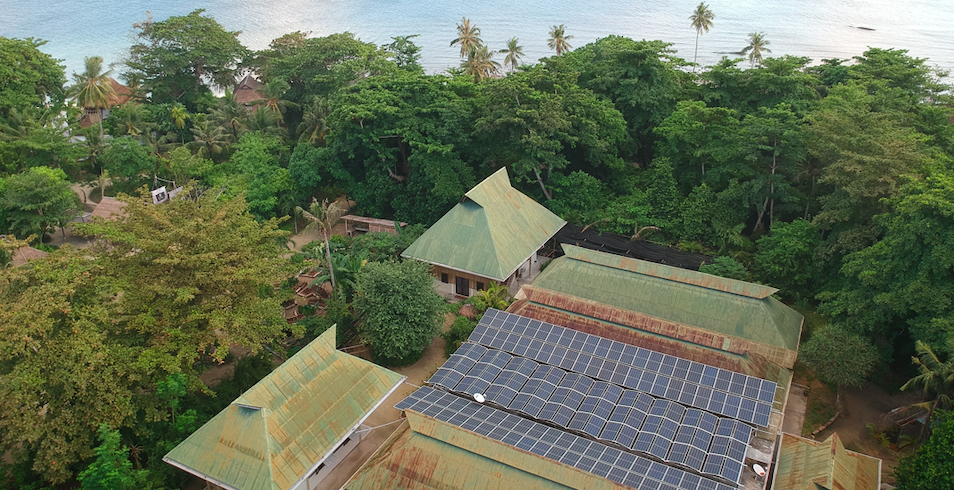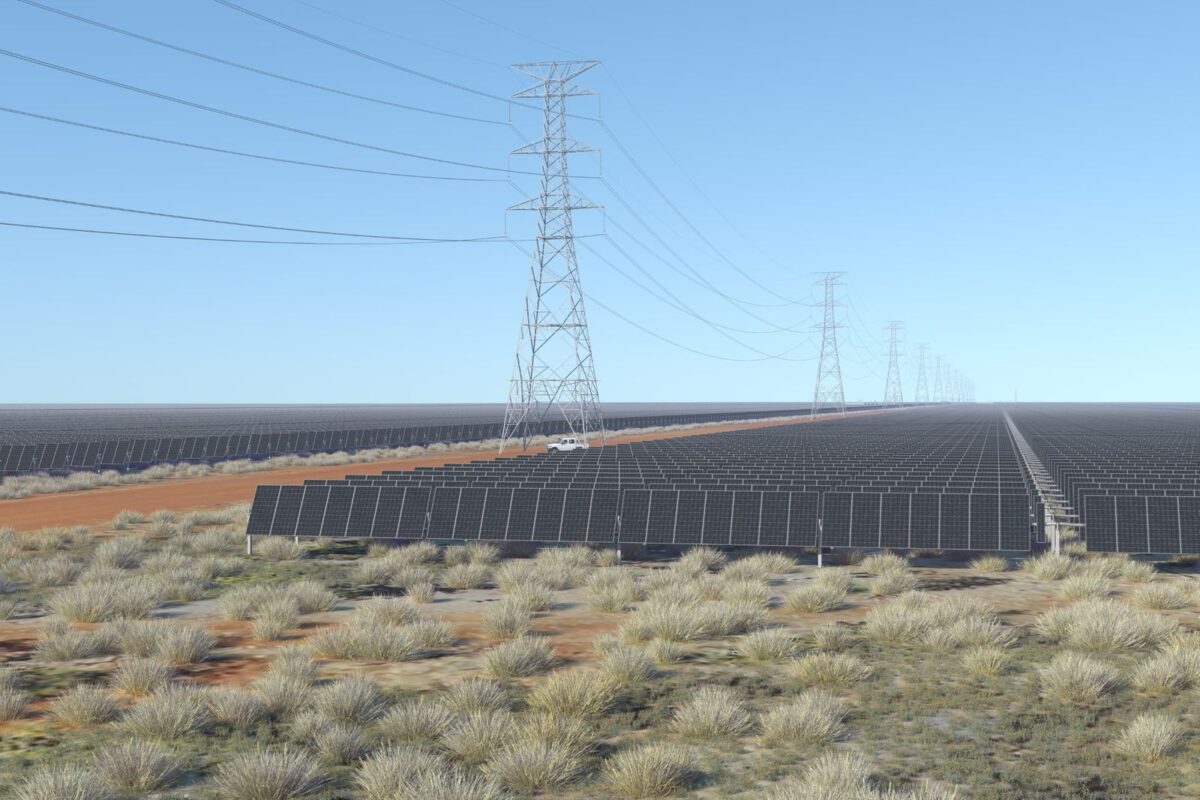It’s a rather astounding thought, tropical islands bathed in copious sunshine and yet these isolated landmasses the world over still primarily rely on expensively transported diesel fuel. However, it seems people are finally beginning to see the light, and crucially, putting a solar panel in front of it.
Only last month, after years of back and forth, the news came that the iconic Lord Howe Island is set to receive a solar + battery storage installation which will significantly cut its reliance on diesel fuel. Similarly now, Singapore-based Canopy Power has announced the completion of two solar energy microgrid projects on the private Indonesian island resorts of Nikoi and Cempedak. The microgrids are set to reduce the islands diesel fuel consumption by 50%.
The installed hybrid Solar PV-Diesel Energy Storage microgrid will go a long way to saving the resorts’ on the high operating costs and logistical complexities of diesel power, let alone the negative impacts upon the local environment. Both resorts now feature roof-mounted solar panels with a capacity of 52.5 kW peak by REC Solar in tandem with solar inverts by SMA.
In The Old Man and the Sea Hemingway wrote the line about fish, but it’s true for private island resorts utilising solar PV too, “the setting of the sun is a difficult time…” Thankfully, both islands’ hybrid installations are backed up by a 77kWH lithium-ion energy storage system by German manufacturer Tesvolt. Any of the day’s surplus power can be stored for use at night and during periods of low-intensity sunshine. The combination of solar + storage has meant that the existing diesel generators are oft entirely disabled for extended periods.
“We are delighted to have completed these two projects,” said Sujay Malve, founder and CEO of Canopy Power, “to deliver a meaningful impact for our customer, and a better environment for both the guests and staff. With this being our fourth and fifth remote microgrid deployment for the hospitality sector, we are demonstrating that this concept is viable and effective. We look forward to continuing our work with Nikoi Private Island and Cempedak Private Island as an O&M providers, and scaling their system as they expand, towards helping them realise their goals of full sustainability.”
Andrew Dixon, founder and director of Nikoi Private Island and Cempedak Private Island, noted the evolutionary transition the islands are taking. From an initial solar PV system on Nikoi, to the two larger hybrid systems installed by Canopy Power, the resorts are looking toward a future of self-sufficiency.
Early this month it was announced that the Asian Development Bank (ADB) would provide a grant of US$6 million to Tuvalu in order to help the island nation reach its 100% renewable electricity goal. The grant will help fund solar rooftop and battery storage systems on the main atoll of Funafuit as well as providing clean electricity to the outer islands of Nukefetau, Nukelaelae and Nui with ground-mounted PV systems.
Currently diesel generators are the dominant form of power generation for the island nation, with renewables supplying only 22% of the load, though that is soon to change.
This content is protected by copyright and may not be reused. If you want to cooperate with us and would like to reuse some of our content, please contact: editors@pv-magazine.com.









By submitting this form you agree to pv magazine using your data for the purposes of publishing your comment.
Your personal data will only be disclosed or otherwise transmitted to third parties for the purposes of spam filtering or if this is necessary for technical maintenance of the website. Any other transfer to third parties will not take place unless this is justified on the basis of applicable data protection regulations or if pv magazine is legally obliged to do so.
You may revoke this consent at any time with effect for the future, in which case your personal data will be deleted immediately. Otherwise, your data will be deleted if pv magazine has processed your request or the purpose of data storage is fulfilled.
Further information on data privacy can be found in our Data Protection Policy.